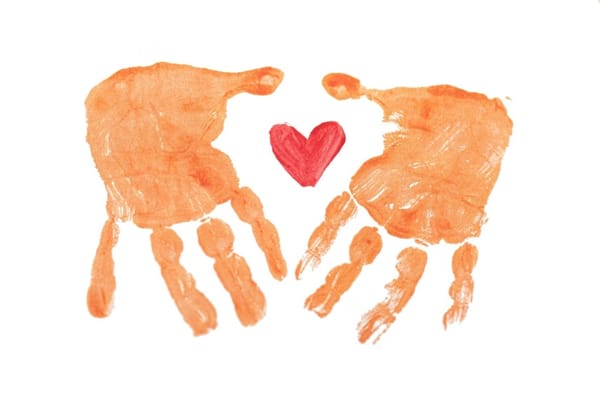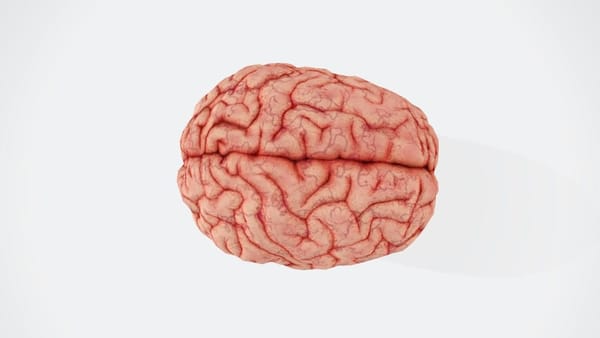An advanced study from Columbia University researchers has exposed that experiencing the loss of a loved one may accelerate biological aging, with multiple losses having a more pronounced effect on cellular aging markers. This finding, published in JAMA Network Open, sheds new light on the long-term physical impacts of grief and loss across different life stages.
Study on Loss and Aging
The study on loss and aging, conducted by researchers at Columbia University Mailman School of Public Health and the Butler Columbia Aging Center, provides compelling evidence for the link between experiencing the loss of a loved one and accelerated biological aging. This comprehensive research, published in JAMA Network Open, utilized data from the National Longitudinal Study of Adolescent to Adult Health, which began in 1994-95 and followed participants from adolescence into adulthood 1.
The study examined the impact of familial loss during childhood or adolescence (up to 18 years old) and adulthood (19 to 43 years old) on biological aging. Researchers analyzed blood samples from nearly 4,500 participants to assess DNA methylation patterns, a key indicator of biological age 1.
Key findings from the study include:
- Nearly 40% of participants experienced at least one loss in adulthood between the ages of 33 and 43 1.
- Parental loss was more common in adulthood (27%) compared to childhood and adolescence (6%) 1.
- A higher proportion of Black (57%) and Hispanic (41%) participants experienced at least one loss compared to white participants (34%), highlighting potential racial and ethnic disparities in loss experiences 1.
- Individuals who experienced two or more losses showed signs of older biological age, as measured by several epigenetic clocks 1.
- The impact of loss on aging was observed long before middle age, suggesting that the effects of grief on biological processes may begin earlier in life than previously thought 1.
The study's lead author, Allison Aiello, PhD, emphasized the significance of these findings, stating, "Our study shows strong links between losing loved ones across the life course from childhood to adulthood and faster biological aging in the U.S." 1
The researchers utilized various epigenetic clocks to measure biological aging, including DunedinPACE, developed by study co-author Dan Belsky and collaborators at Duke University. These sophisticated tools analyze DNA methylation patterns to estimate biological age with high accuracy 1.
The study's findings suggest that the accumulation of losses over time may be a significant factor in accelerated biological aging. Experiencing two or more losses in adulthood was more strongly associated with biological aging than a single loss, and significantly more so than no losses 1.
These results align with previous research on the health impacts of loss, which has shown connections between losing loved ones and various health problems throughout life. For instance, losing a parent or sibling early in life has been associated with mental health issues, cognitive problems, higher risks of heart disease, and increased mortality risk 1.
The study's authors emphasize that while loss at any age can have long-lasting health impacts, the effects might be more severe during key developmental periods like childhood or early adulthood. This underscores the importance of providing appropriate support and resources for individuals experiencing loss, particularly during these critical life stages 1.
Future research directions suggested by the study include:
- Investigating ways to reduce disproportionate losses among vulnerable groups
- Developing and evaluating interventions to support individuals who have experienced loss
- Exploring the biological mechanisms through which loss leads to accelerated aging
- Examining the potential long-term health consequences of accelerated biological aging due to loss
This groundbreaking research not only advances our understanding of the complex relationship between grief, loss, and biological aging but also highlights the need for targeted interventions and support systems to mitigate the potential long-term health impacts of experiencing loss across the lifespan.
Sources:
Understanding Biological Aging
Biological aging, also known as senescence, is the gradual decline in cellular function and physiological processes that occurs over time. This complex phenomenon is at the heart of the study conducted by researchers at Columbia University Mailman School of Public Health and the Butler Columbia Aging Center, which examined the impact of losing loved ones on the aging process.
The concept of biological aging differs from chronological aging in that it reflects the actual state of an individual's cells, tissues, and organs rather than simply the passage of time. Key aspects of biological aging include:
- Cellular deterioration: As cells age, they accumulate damage to DNA, proteins, and other cellular components, leading to decreased function and increased risk of cell death.
- Telomere shortening: Telomeres, the protective caps at the ends of chromosomes, shorten with each cell division, eventually leading to cellular senescence or death.
- Epigenetic changes: Modifications to DNA that do not alter the genetic sequence but affect gene expression can accumulate over time, influencing cellular function and aging.
- Mitochondrial dysfunction: The energy-producing organelles in cells become less efficient with age, contributing to overall cellular decline.
- Stem cell exhaustion: The body's ability to regenerate and repair tissues diminishes as stem cell populations become depleted or less functional.
In the context of the Columbia University study, researchers utilized epigenetic clocks to measure biological aging. These clocks analyze DNA methylation patterns, which are epigenetic modifications that change predictably with age. By examining these patterns, scientists can estimate an individual's biological age and compare it to their chronological age.
The study employed several epigenetic clocks, including DunedinPACE, developed by study co-author Dan Belsky and his collaborators at Duke University. These sophisticated tools allowed researchers to detect subtle changes in biological aging associated with the experience of losing loved ones.
The findings revealed that individuals who experienced two or more losses had older biological age, as measured by the epigenetic clocks. This accelerated aging was more pronounced in those who experienced multiple losses in adulthood, suggesting that the accumulation of grief and stress over time may have a compounding effect on cellular aging processes.
Understanding biological aging is crucial for interpreting the study's results, as it provides insight into how emotional experiences like grief can manifest in physical changes at the cellular level. The accelerated biological aging observed in individuals who experienced multiple losses may be attributed to various factors:
- Chronic stress: Grief can trigger prolonged stress responses, leading to elevated cortisol levels and other stress-related hormones that can accelerate cellular aging.
- Inflammation: Emotional distress has been linked to increased systemic inflammation, which is a known contributor to accelerated aging and age-related diseases.
- Lifestyle changes: Loss of a loved one may lead to changes in diet, exercise habits, and sleep patterns, all of which can impact biological aging.
- Immune system dysregulation: Grief has been shown to affect immune function, potentially leaving individuals more susceptible to age-related decline and disease.
The study's findings highlight the importance of considering psychological and social factors in the biology of aging. By demonstrating a link between loss experiences and accelerated biological aging, the research underscores the interconnectedness of emotional well-being and physical health throughout the lifespan.
Future research in this area may focus on identifying specific biological pathways through which grief and loss influence aging processes, as well as developing interventions to mitigate these effects. Understanding the mechanisms of biological aging in relation to life experiences could lead to more targeted approaches for promoting healthy aging and reducing age-related health disparities among different populations.
Sources:
- (1) losing-loved-one-may-speed
Epigenetic Clocks' Role
Epigenetic clocks played a crucial role in the Columbia University study, providing researchers with a powerful tool to measure biological aging and its relationship to the experience of losing loved ones. These sophisticated biomarkers analyze DNA methylation patterns to estimate an individual's biological age, offering insights into how life experiences can impact cellular aging processes.
The study utilized several epigenetic clocks, including the DunedinPACE clock developed by study co-author Dan Belsky and his collaborators at Duke University 1. These clocks work by examining specific sites on DNA where methyl groups attach, a process known as DNA methylation. The patterns of methylation change predictably with age, allowing researchers to estimate biological age with remarkable accuracy.
Key aspects of epigenetic clocks in this study include:
- Precision measurement: Epigenetic clocks provided a more precise measure of biological aging compared to traditional biomarkers, allowing researchers to detect subtle changes associated with loss experiences.
- Multiple clock analysis: By using several epigenetic clocks, the researchers could cross-validate their findings and ensure the robustness of their results.
- Longitudinal assessment: The study's design, which followed participants from adolescence to adulthood, allowed researchers to track changes in epigenetic age over time and correlate these changes with loss experiences 1.
- Population representation: The use of data from the National Longitudinal Study of Adolescent to Adult Health ensured that the findings were representative of the U.S. population 1.
The epigenetic clock analysis revealed that individuals who experienced two or more losses had older biological age compared to those who experienced fewer or no losses 1. This finding was consistent across multiple epigenetic clocks, strengthening the evidence for a link between loss experiences and accelerated biological aging.
Importantly, the use of epigenetic clocks allowed researchers to observe aging effects long before middle age, suggesting that the impact of loss on biological processes may begin earlier in life than previously thought 1. This insight highlights the potential for early intervention strategies to mitigate the long-term health consequences of loss.
The application of epigenetic clocks in this study demonstrates their value in aging research and their potential to uncover the biological mechanisms underlying the health impacts of life experiences. As these tools continue to be refined and applied in diverse research contexts, they may lead to new insights into the aging process and inform targeted interventions to promote healthy aging across the lifespan.
Sources:
Mitigating Aging Effects
The study's findings on the link between loss and accelerated biological aging highlight the importance of developing strategies to mitigate these effects. While experiencing loss is an inevitable part of life, there are potential ways to reduce its impact on biological aging:
- Grief support and counseling: Providing timely and appropriate mental health support for individuals who have experienced loss may help mitigate the stress response and its effects on biological aging. Professional counseling and support groups can offer coping strategies and emotional support 1.
- Stress reduction techniques: Practices such as mindfulness meditation, yoga, and deep breathing exercises can help manage stress levels, potentially reducing the physiological impact of grief on the body 1.
- Maintaining social connections: Strong social support networks can buffer the effects of loss and may help protect against accelerated aging. Encouraging individuals to maintain and build relationships can be beneficial 1.
- Healthy lifestyle habits: Promoting regular exercise, a balanced diet, and adequate sleep can support overall health and potentially counteract some of the biological aging effects associated with loss 1.
- Early intervention: Given that the study found aging effects observable long before middle age, implementing support systems and interventions early after a loss may be crucial in preventing long-term health consequences 1.
- Addressing disparities: The study revealed higher rates of loss among Black and Hispanic participants. Developing targeted interventions and support systems for these communities may help reduce health disparities related to loss and aging 1.
- Trauma-informed care: Healthcare providers should be trained in trauma-informed approaches to better support patients who have experienced significant losses 1.
- Longitudinal support: Recognizing that the effects of loss can persist long after the event, providing ongoing support and check-ins may be beneficial 1.
- Resilience building: Programs that focus on building emotional resilience and coping skills may help individuals better manage the stress associated with loss 1.
- Public health initiatives: Developing public health campaigns to raise awareness about the potential long-term health impacts of loss and the importance of seeking support 1.
- Workplace policies: Implementing compassionate bereavement leave policies and employee assistance programs can provide crucial support during times of loss 1.
- Research into biological interventions: Future studies could explore potential pharmacological or nutritional interventions that may help mitigate the biological aging effects associated with loss 1.
Dr. Allison Aiello, the study's lead author, emphasizes the importance of addressing these issues: "For those who experience loss, providing resources for coping and addressing the trauma is essential." 1 By implementing a multi-faceted approach that combines emotional support, lifestyle interventions, and targeted research, it may be possible to reduce the long-term health impacts of loss and promote healthier aging across diverse populations.
Sources:












Member discussion